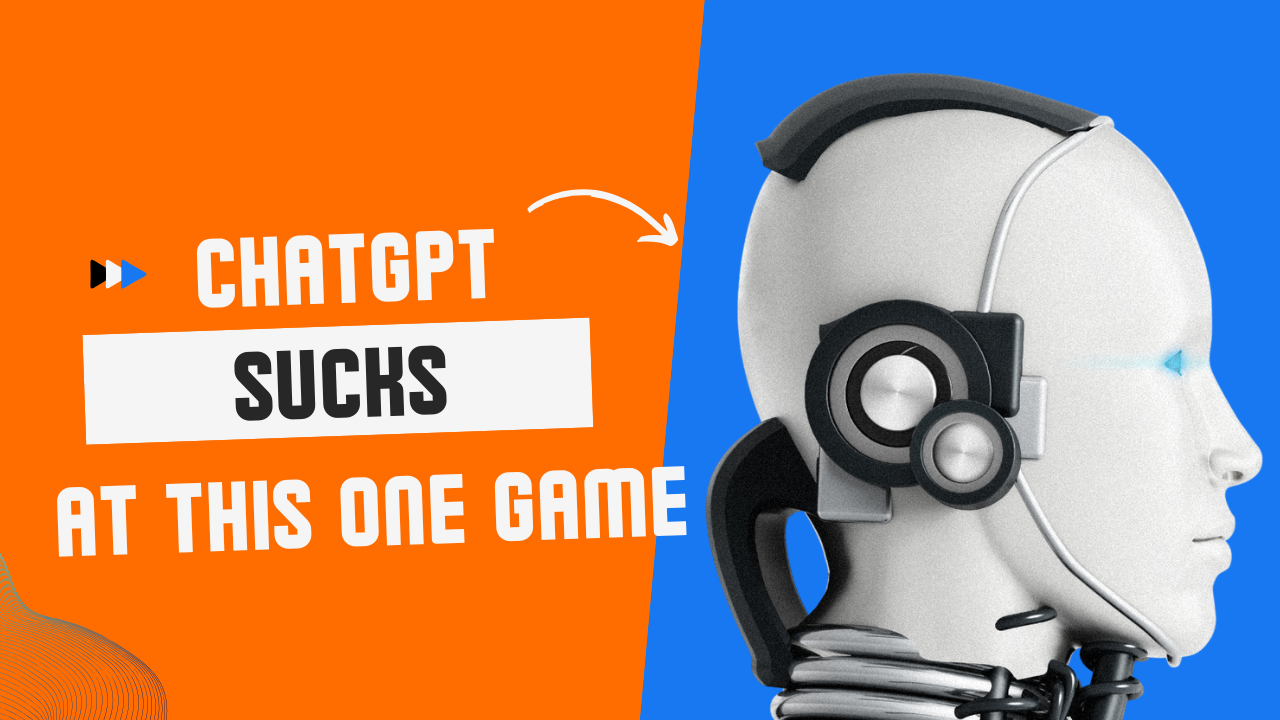I grew up in the Midwest, where everyone plays Euchre. It’s a staple at family gatherings, a way to pass the time during long winters, and an unofficial skill test for anyone claiming Midwestern roots. We played on lunch breaks at the factory where I worked during college, at weddings, at backyard BBQs. Now, I play online—sometimes with friends, sometimes with strangers, and sometimes against the computer.
Recently, I got curious: Could ChatGPT help me improve my game? Could it analyze my online Euchre matches and offer strategy insights? Or maybe even simulate a game so I could practice? Given all the hype around AI’s brilliance, I figured it was worth a shot.
Well, turns out, ChatGPT sucks at Euchre.
Attempt #1: Can ChatGPT Shuffle and Deal?
Before diving into strategy, I wanted to see if ChatGPT could just run a simple game simulation. Could it shuffle and deal the cards? Well, yes, but that’s as far as I got.
I asked it to deal. It dealt four hands of five cards each. So far so good. Then it fell apart. It had partners sitting next to each other. It corrected that mistake. I called up Diamonds as trump. It discarded 9♦. I said wait, Diamonds is trump, you might need that. It corrected course and changed its discard. It led. But wait. It just dealt. The player to the right of the dealer is supposed to deal. It corrected course. Player 1 led the K♠. Other players followed suit. It then took the trick with a J♠. Wait! J♠ does not beat K♠.
ChatGPT isn’t designed for that kind of thing. It doesn’t have a built-in game engine, and while it can randomly assign cards in text form, it won’t track game state or enforce rules. Okay, fair enough. That’s not really what it was built for.
Attempt #2: Can ChatGPT Analyze My Euchre Games?
Next, I pasted some hands from online games and asked for analysis. This is where things really started to fall apart.
For one, ChatGPT didn’t always recognize that in Euchre, the Jacks of trump are the most powerful cards—higher than the Aces. Sometimes it treated them like normal Jacks, completely misranking them. Other times, it seemed to get it right, but inconsistently. That’s a fundamental misunderstanding of the game’s core mechanic.
Beyond that, its strategy recommendations were… mediocre. It gave safe, generic advice, but didn’t consider my opponents’ past plays or overall game dynamics. Euchre is a game of incomplete information, where reading the table is just as important as knowing the odds. ChatGPT didn’t seem to grasp that.
Attempt #3: Can ChatGPT Develop a Winning Strategy?
Maybe it just needed some fine-tuning. So I asked it: “Can you develop a winning Euchre strategy?”
Its response? It basically admitted it wasn’t great at the game. It suggested some basic strategies — trump management, knowing when to call, paying attention to what’s been played — but nothing I hadn’t already heard from my smarter nephews while drinking a Bell’s Two Hearted IPA at a family reunion.
To be fair, it was honest about its limitations. It ranked itself as an average player at best and suggested I read strategy guides if I wanted to improve. At least it knows what it doesn’t know.
Why Does This Matter?
Alright, so ChatGPT isn’t great at Euchre. Big deal. But this actually highlights a larger issue with AI, and one that matters beyond card games.
For all its intelligence, ChatGPT isn’t actually thinking—it’s pattern-matching. It’s not strategizing based on hidden information or intuitively adjusting its play based on the psychology of its opponents. It’s regurgitating probabilities and rules it’s learned from text data.
This is the same reason AI struggles with tasks that require true adaptability. If the rules are clear and deterministic—like chess or Go—AI can become superhuman. But as soon as intuition, deception, personalities, changing patterns or cultural nuances come into play, it stumbles.
Euchre, despite its simplicity, has deceptively complex decision trees. For one, probabilities cannot be calculated as easily as in Blackjack; you must run simulations. Secondly, it’s not just about the cards; it’s about the people playing them. It’s about the Midwest sensibility of trusting your partner, calling trump with just enough nerve, and knowing when someone across the table is grinning because they’ve got the Right Bower and they’ve got your back.
AI doesn’t get that.
AI in the Real World: Where It Struggles
This same pattern plays out in business, too. AI is fantastic at optimizing well-defined, repetitive tasks—automating data entry, predicting demand trends, summarizing reports. But in areas requiring human intuition—like leadership, negotiation, or creativity—it falls short.
That’s why AI-generated content often feels a little “off.” It’s why AI chatbots struggle in customer service when someone is caustically sarcastic. It’s why AI-assisted hiring tools sometimes reinforce biases instead of eliminating them.
The danger isn’t that AI is bad — it’s that people expect it to be better than it actually is.
Generate a visual mitten map showing where the Leelenau Peninsula is.
The Midwest vs. AI
Maybe Euchre is just a Midwest thing. And, maybe ChatGPT isn’t from the Midwest. But I think there’s a deeper message here. Euchre isn’t just a card game. It embodies the Midwestern mindset. It’s about trust, bluffing, and reading the room. AI doesn’t understand any of that.
So next time someone tells you AI is about to replace humans in everything, just remind them: ChatGPT can’t even play a decent game of Euchre. Until it can, I’m not too worried about AI taking over the world.
Next time, I’m goin’ alone.


